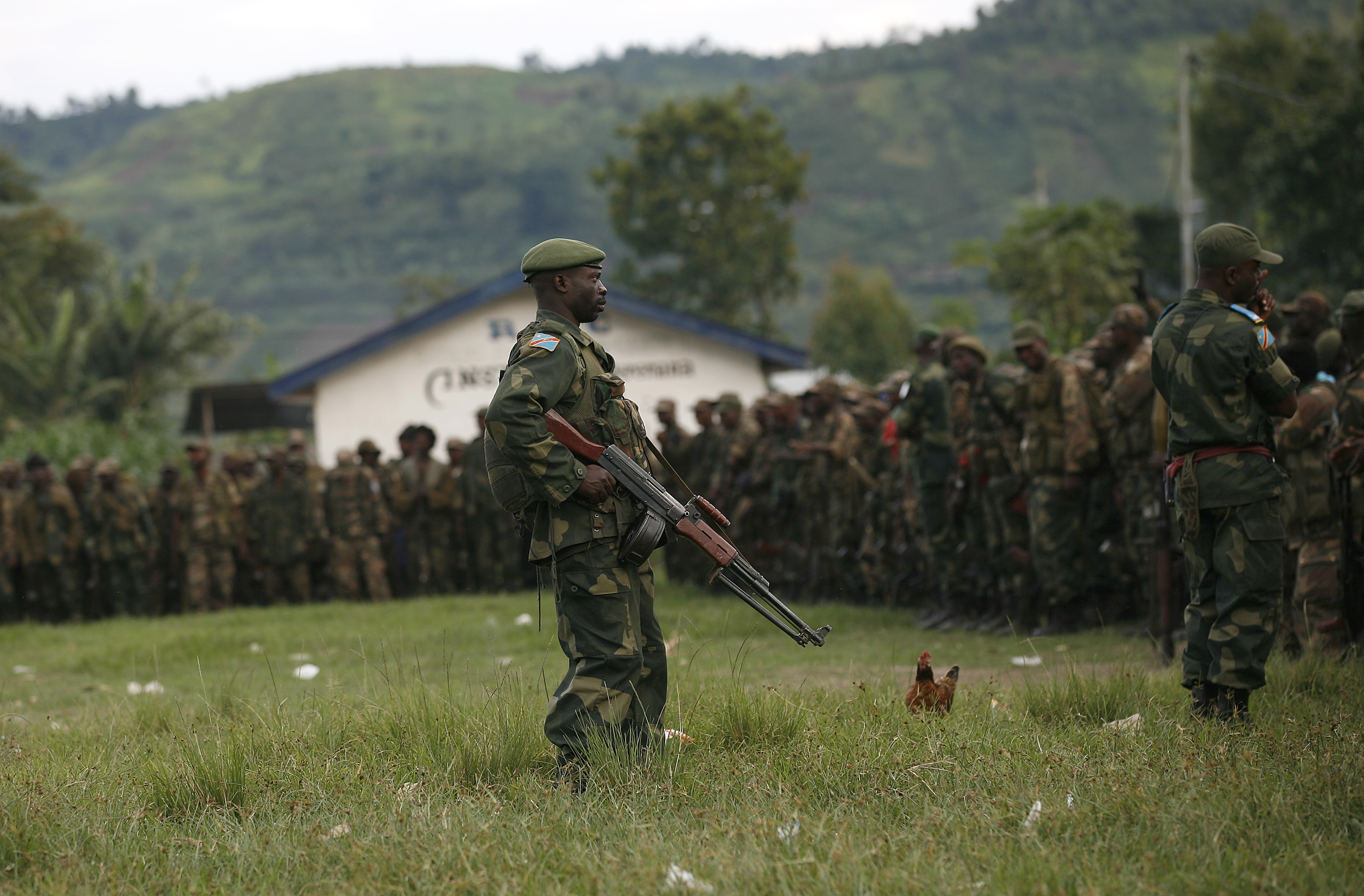
Editor's Note: This op-ed originally appeared on The Daily Monitor.
In early November, the Congolese army, supported by the United Nations Force Intervention Brigade, defeated the most powerful rebel group in eastern Congo – the M23. The brigade has since identified as one of the new targets, the Democratic Forces for the Liberation of Rwanda, or FDLR, a rebel group led in part by commanders implicated in the 1994 genocide in neighbouring Rwanda. The new focus may in part be the result of political overtures toward Rwanda for ending its support to M23, but neutralising the FDLR is a worthy effort by itself and critical for peace in eastern Congo.
The focus on addressing the FDLR comes at a pivotal moment. Over the last few weeks, elements of as many as 20 rebel groups across eastern Congo have either surrendered to the Congolese army or offered to lay down their weapons. Targeting the FDLR now will likely sustain this momentum, as many of the surrendering groups sprung up in defiance to the FDLR.
Effectively neutralising the FDLR will require a comprehensive approach addressing the complexity of the threat and the group’s unique traits. An effective strategy should feature more robust grassroots partnerships to promote defections together with a mix of targeted and better informed military operations aimed at the FDLR hardline leadership. As earlier operations against the FDLR brought great humanitarian fallout, the brigade must improve civilian protection.
When conducting military operations against the FDLR in conjunction with the Congolese army, the UN brigade must ensure the Congolese army severs linkages that have helped FDLR members secure military gear and intelligence to relocate troops before military offensives. The UN must also vet Congolese army units for human rights abuses and provide human rights training. Armed groups have repeatedly been reintegrated into the national forces without such measures. With little to no payment, in an environment rife with insecurity, soldiers often use their own weapons to make ends meet, exposing local populations to grave risks.
The UN brigade should break the potential armed alliances of both their co-collaborators, the Congolese army, and their target, the FDLR. Most importantly, targeted military operations against the FDLR must accompany robust efforts to disarm, demobilise, repatriate (DDR), and reintegrate, and resettle (RR) FDLR combatants. Contrary to wide-held Congolese perceptions, many FDLR members were born or grew up in Congo and need a national-level solution such as nationalisation and relocation. Any DDR/RR programme must offer long-term support, real security guarantees, and sustainable livelihood alternatives without inducing others to join rebel groups to reap the DDR/RR benefits. UN Special Envoy Mary Robinson and US Special Envoy Russ Feingold should urge Kinshasa to make DDR/RR an immediate priority.
Read the full op-ed at The Daily Monitor.
Photo: FARDC soldiers on patrol in eastern Congo (AP).

